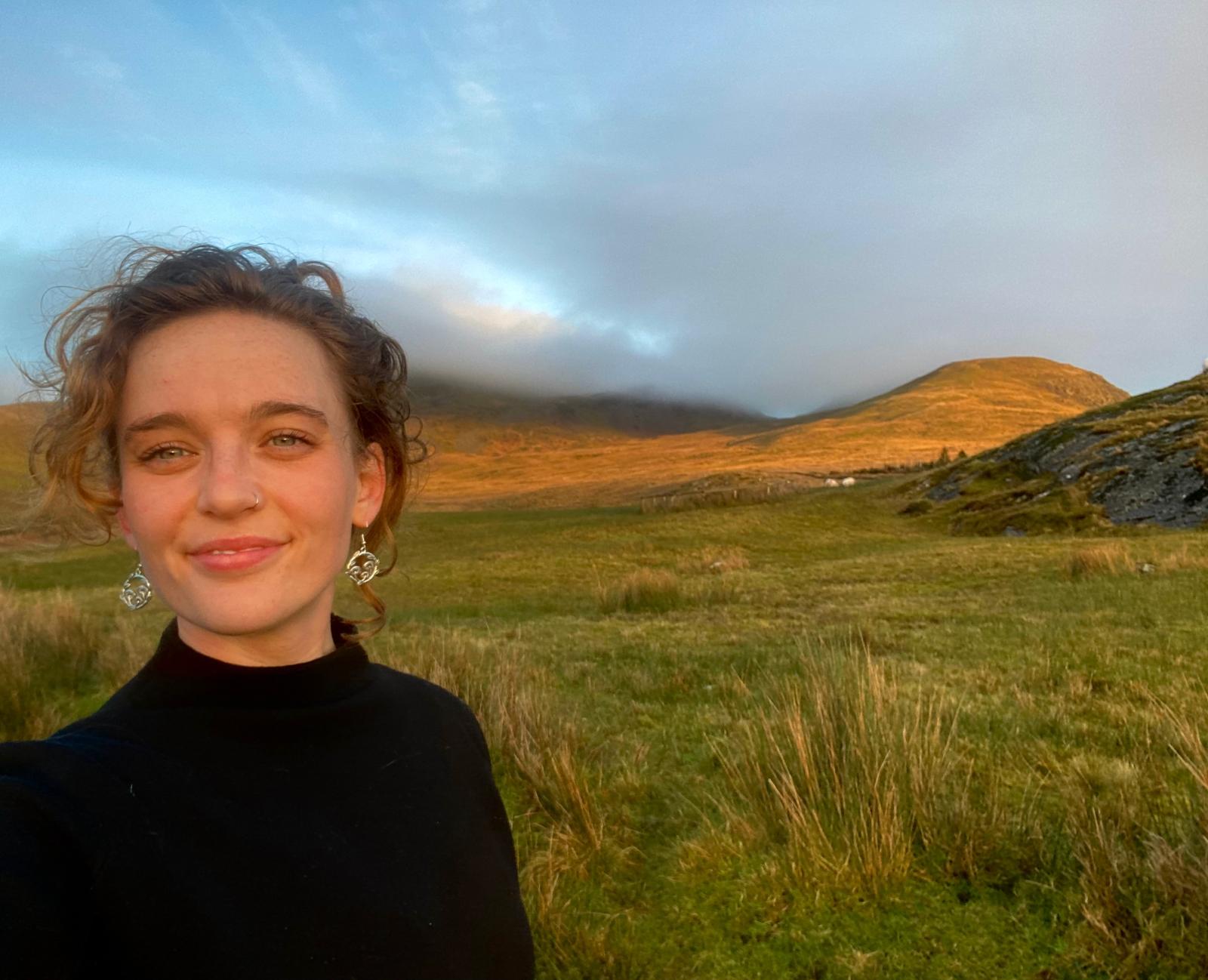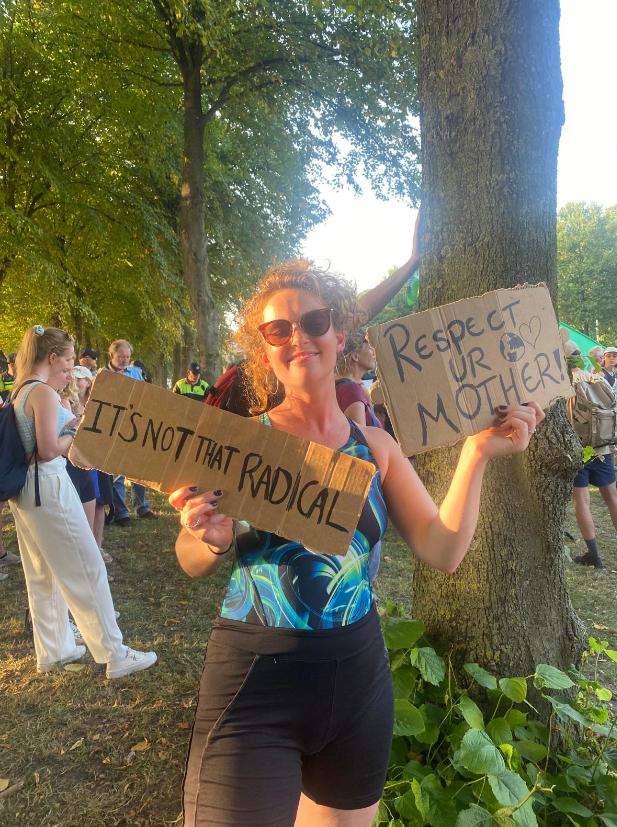
Martha Myers
Intergenerational Conversations: Martha Myers, Senior Global Organiser at 350.org
Activism has its challenges, but luckily for us there are plenty of people who have faced these challenges before.
That’s why today we’re launching a new series of intergenerational conversations with changemakers who are doing the work, all of whom also volunteer their time to mentor our Resilience Project Co-Hosts.
First up we have Martha Myers, a member of the Board of Director at Fuel Poverty Action. Martha has organised in climate justice spaces, from grassroot to international NGOs, for the last 10 years. Her main passion is working outside of the typical climate sphere alongside social justice and trade union allies to build power for systemic change. Through campaigning, Martha realised the importance of sustainable care-based activism, and now delivers trainings in mitigating burnout.

Martha standing on a hillside at sunset in a black turtleneck. She has dangly silver earrings.
Activism can take many forms. How do you see the work that you do making a change in the climate and wellbeing sector?
“Radical simply means grasping things at their root” — Angela Davis
I try to remind myself of this daily. I started my activism on the streets, however I’ve been working in European politics, mainly for climate NGOs, for the past 5 years.
I have often been told by decision makers that bringing systemic solutions is unrealistic and to stick to the reformist path. It knocked my confidence and I felt disillusioned. However, over time, I realised that this is our role as activists: to believe that the impossible is possible even when we are told otherwise. It is important to carry on grasping things at the root and not to settle.
I used to work mainly on resistance campaigns to fossil fuel corporations, however I’ve shifted more recently to remedy campaigns and movement building work behind the scenes. My main passion is to bring together voices from the ‘red’ and ‘green’ movements to see what there is that unites us rather than divides us.
Making connections between trade unions, social justice collectives and climate groups takes a lot of time, dialogue and trust building. For me, this unity is an important way forward for movements to have justice and solidarity at the centre. It's often quiet work, but lays the foundation for something stronger.

Martha standing next to a tree at a Rights for Nature protest. She is wearing a patterned blue top and is holding two cardboard signs. One says ‘its not that radical’. The other says ‘respect your mother’.
Sustaining activism and change-making work can be difficult in many ways. What uncertainty have you faced that threatened continuing your work in climate and wellbeing, and how did you maneuver that uncertainty?
The feeling of ‘not doing enough’ hit me hard as an activist. When we understand the scale of the overlapping crises we face, it can be hard to hold. Like many others, I turned this anger, grief and fear into pushing myself beyond my limits. I became emotionally, physically and spiritually exhausted- aka a burnout.
This was a turning point for me. I had to reassess how I could care for myself and the world in a less exploitative way. I took some time out from campaigning and found great writers and friends who felt similarly. I started an Active Hope course with the great work of Joanna Macy. Here I processed through so many emotions I felt stuck in my body. I now feel able to return to activism with better boundaries and hopefully for the long run!
What does no one talk about around change-making?
As Audre Lorde states: ‘Caring for myself is not self-indulgence, its self preservation and that is an act of political warfare… Our feelings are our most genuine paths to knowledge’.
Taking care of ourselves and others is not always centred in movements. Even I used to dismiss this as indulgent or an add-on. However if we do not take care of ourselves and our community spaces, how are we meant to take care of the wider world? I thank the Resilience project for being part of that journey for so many people.

